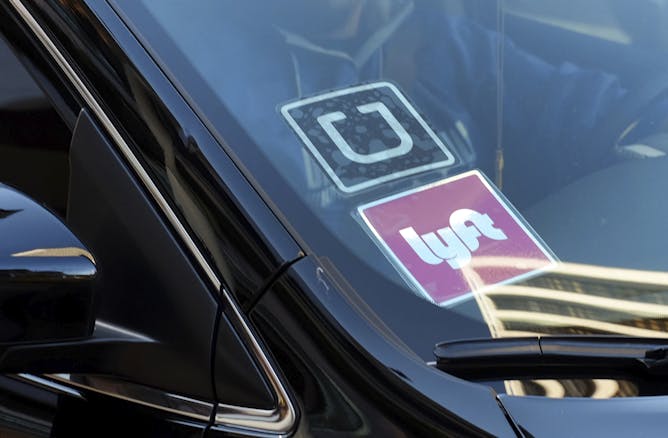
Proposition 22 reverses a 2019 state law.
AP Photo/Richard Vogel
Juliet B. Schor, Boston College
The debate over how to classify gig workers pits flexibility against the higher incomes and benefits that come with being classified as an employee.
|
Politics/Election '20
|
-
Christopher Ojeda, University of Tennessee
Every election triggers distress for some people. Here are some ways to possibly cope.
-
Alexander Cohen, Clarkson University
Five of the six disputed presidential elections in US history were resolved and the country moved on -- but one ended in civil war. What will happen in 2020?
-
W. Joseph Campbell, American University School of Communication
Polls predicted a 'blue wave' that didn't materialize.
-
Phillip J VanFossen, Purdue University
Three approaches were debated during the Constitutional Convention -- election by Congress, selection by state legislatures and a popular election, though that was restricted to white landowning men.
|
|
Science + Technology
|
-
Wendy Whitman Cobb, US Air Force School of Advanced Air and Space Studies
Humans have been living on the International Space Station for two full decades. So what comes next for this ailing technology, and what does it mean for future International ventures in space?
|
|
Education
|
-
Nolan L. Cabrera, University of Arizona
Ethnic studies were born out of resistance. Now, the courses often face resistance themselves – from white students. Is making these classes mandatory the way to go? A scholar weighs in.
|
|
Health
|
-
Partho Sengupta, West Virginia University
Cardiologists say student athletes who test positive for COVID-19 should see their doctors to determine if heart tests are necessary, even if they don't have symptoms.
|
|
From our international editions
|
-
Nadia Hilliard, UCL
The political and social crisis in the US has its roots in twin challenges.
-
Natasha Lindstaedt, University of Essex
Prematurely declaring election victory is a hallmark of non-democratic regimes.
-
Cheryl Thompson, Ryerson University
The closeness of the 2020 U.S. election has much to do with the way in which both Trump and Biden have invoked an imagined past.
|
|